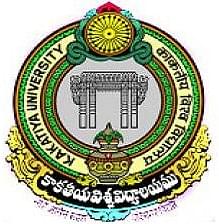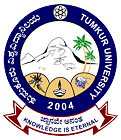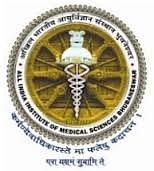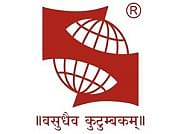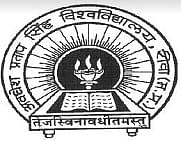Introduction about Ph. D in Mechanical
A Ph.D. in Mechanical Engineering from the best college is the highest academic degree available in
the field, representing a significant commitment to advanced study, research,
and expertise in mechanical engineering. It offers students the opportunity to
delve deeply into specialized areas of mechanical engineering, contribute to
the advancement of knowledge through original research, and pursue careers in
academia, industry, research institutions, and government agencies.
Here's an
introduction to a Ph.D. in Mechanical Engineering program:
Advanced Study in
Mechanical Engineering: A
Ph.D. program in Mechanical Engineering provides advanced coursework covering a
wide range of topics in mechanical engineering. These topics may include:
Advanced mechanics:
Continuum mechanics, solid mechanics, fluid mechanics, and thermodynamics.
Dynamics and
controls: Dynamics of mechanical systems, control theory, robotics, and
mechatronics.
Materials science
and engineering: Material properties, material selection, materials processing,
and nanomaterials.
Design and
manufacturing: Design methodologies, manufacturing processes, computer-aided
design (CAD), and computer-aided manufacturing (CAM).
Energy systems:
Renewable energy technologies, combustion, heat transfer, and energy
conversion.
Biomechanics:
Mechanical behavior of biological systems, medical devices, and biomechanical
modeling.
Research
Opportunities: One of the
primary focuses of a Ph.D. program is research. Ph.D. students work closely
with faculty advisors to identify research topics, design experiments, analyze
data, and publish findings in academic journals and conferences. Research
projects in mechanical engineering may involve theoretical modeling,
computational simulations, experimental testing, and prototype development in
areas such as:
Advanced materials
and structures: Development of new materials, characterization of material
properties, and design of lightweight structures.
Robotics and
automation: Development of robotic systems for industrial, medical, and
consumer applications, including autonomous vehicles and surgical robots.
Energy systems and
sustainability: Research on renewable energy technologies, energy-efficient
systems, and sustainable manufacturing processes.
Biomechanics and
bioengineering: Study of the mechanical properties of biological tissues,
design of medical devices, and biomechanical modeling of human movement.
Advanced
manufacturing: Research on additive manufacturing (3D printing), advanced
machining processes, and digital manufacturing technologies.
Fluid mechanics and
aerodynamics: Study of fluid flow phenomena, aerodynamic design, and propulsion
systems for aerospace and automotive applications.
Interdisciplinary
Collaboration: Mechanical
engineering intersects with other fields such as materials science, electrical
engineering, computer science, biomedical engineering, and environmental
science. Ph.D. students often have opportunities to collaborate with
researchers from diverse disciplines on interdisciplinary projects, fostering
innovation and knowledge exchange.
Teaching Experience: Many Ph.D. programs offer opportunities
for teaching assistantships, allowing students to gain valuable experience in
teaching undergraduate courses, leading laboratory sessions, and mentoring
students. Teaching experience enhances communication skills, deepens
understanding of fundamental concepts, and prepares students for academic
careers.
Professional
Development: Ph.D. students
engage in professional development activities to enhance their skills and
prepare for careers in academia, industry, government, or entrepreneurship.
These activities may include attending seminars and workshops, participating in
conferences, writing grant proposals, and networking with professionals in the
field.
Dissertation: The culmination of a Ph.D. program is the
completion of a doctoral dissertation, which represents an original
contribution to the field of mechanical engineering. The dissertation
demonstrates the student's ability to conduct independent research, analyze
complex problems, and make significant advancements in knowledge. It typically
involves several years of dedicated research, writing, and defense before a
committee of faculty members.
Career
Opportunities: Graduates of
Ph.D. programs in Mechanical Engineering pursue diverse career paths in
academia, industry, government, and research institutions. They work as
professors, researchers, engineers, consultants, and entrepreneurs,
contributing to the development of new technologies, products, and solutions in
areas such as aerospace, automotive, energy, manufacturing, biomedical, and
environmental engineering.
Overall, a Ph.D. in
Mechanical Engineering offers a rigorous and intellectually stimulating
academic experience that prepares graduates for leadership roles in research,
innovation, and technology development in the dynamic and multidisciplinary
field of mechanical engineering. It equips students with the skills, knowledge,
and expertise to address complex challenges and make meaningful contributions
to society through advancements in engineering and technology.
What is admission process for Ph. D in Mechanical?
The admission process for Ph.D. in Mechanical Engineering program can vary depending on the institution offering the
program and its specific requirements. However, here is a general overview of
the typical admission process for Ph.D. programs in Mechanical Engineering:
Research and
Identify Programs: Research
and identify universities, colleges, or research institutions that offer Ph.D.
programs in Mechanical Engineering. Consider factors such as faculty expertise,
research opportunities, program curriculum, facilities, location, and overall
fit with your academic and career goals.
Check Admission
Requirements: Review the
admission requirements for each Ph.D. in Mechanical Engineering program you are
interested in applying to. Admission requirements may vary but commonly
include:
A master's or
bachelor's degree in mechanical engineering, aerospace engineering, or a
closely related field from an accredited institution. Some programs may accept
applicants with degrees in other disciplines if they have relevant coursework
or research experience in mechanical engineering or related fields.
Minimum GPA
requirements for previous academic coursework. The minimum GPA requirement may
vary by program but is typically around 3.0 on a 4.0 scale.
Graduate Record
Examination (GRE) scores. Some Ph.D. programs in Mechanical Engineering may
require applicants to submit scores from the GRE General Test, which includes
sections on verbal reasoning, quantitative reasoning, and analytical writing.
However, this requirement may be waived or optional in some cases. Applicants
should check the specific requirements of each program they are interested in
applying to determine whether GRE scores are required and what minimum score
thresholds, if any, apply.
Letters of
recommendation from academic or professional references who can speak to the
applicant's academic abilities, research experience, and potential for success
in a Ph.D. program in Mechanical Engineering. The number of letters required
may vary by program, but it is commonly around three letters.
Statement of
purpose or personal statement outlining the applicant's academic and research
interests, career goals, and reasons for pursuing a Ph.D. in Mechanical
Engineering. This statement provides an opportunity for applicants to
demonstrate their motivation, passion, and fit for the program.
Resume or
curriculum vitae (CV) detailing the applicant's academic background, research
experience, work experience, publications, presentations, and relevant skills.
This document provides a comprehensive overview of the applicant's
qualifications and accomplishments.
Writing samples or
research papers demonstrating the applicant's research abilities and interests
in mechanical engineering-related topics. These samples provide evidence of the
applicant's research experience, writing skills, and potential for conducting
original research in the field.
Contact Potential
Advisors: Reach out to
faculty members or potential advisors in the Ph.D. in Mechanical Engineering
programs you are interested in to discuss your research interests and determine
if there are faculty members willing to mentor you and support your research
goals.
Prepare Application
Materials: Gather all
required application materials, including transcripts, test scores, letters of
recommendation, statement of purpose, resume or CV, writing samples, and any
other documents specified by the program.
Submit Application: Complete and submit the application form
for each Ph.D. in Mechanical Engineering program you are applying to. Follow
the application instructions provided by each institution, paying attention to
deadlines and submission requirements.
Pay Application
Fees: Pay any application
fees required by the institutions you are applying to. Some programs may offer
fee waivers for qualified applicants, so be sure to inquire about waiver
options if applicable.
Interview (if
required): Some Ph.D.
programs may require applicants to participate in interviews as part of the
selection process. Prepare for interviews by reviewing common interview
questions and highlighting your qualifications, research interests, and goals
related to mechanical engineering.
Submit Additional
Documentation (if required):
If requested by the program, submit any additional documentation or materials
required for the application process, such as samples of your academic or
research work.
Wait for Admission
Decision: After submitting
your application, wait for the admission decision from each institution.
Admission decisions are typically communicated via email, postal mail, or
through an online application portal.
Acceptance and
Enrollment: If you receive
an offer of admission, carefully review the terms and conditions of the offer.
If you decide to accept the offer, follow the instructions provided by the
institution to confirm your acceptance and complete the enrollment process,
which may include submitting enrollment deposits and registering for classes.
It's important to
start the application process early and carefully review the requirements and
deadlines for each Ph.D. in Mechanical Engineering program you are considering.
Be sure to follow the instructions provided by each institution and reach out to
admissions offices or program coordinators if you have any questions or need
clarification on specific requirements. Additionally, establishing connections
with potential advisors and faculty members can strengthen your application and
increase your chances of admission to Ph.D. programs in Mechanical Engineering.
What is eligibility for Ph. D in Mechanical?
The eligibility criteria for Ph.D. in Mechanical Engineering program can vary depending on the institution offering the
program and its specific requirements. However, here are some common
eligibility criteria that are typically required for admission to Ph.D.
programs in Mechanical Engineering:
Educational
Background:
A master's or
bachelor's degree in mechanical engineering, aerospace engineering, or a
closely related field from an accredited institution is usually required for
admission to Ph.D. programs in Mechanical Engineering. Some programs may accept
applicants with degrees in other disciplines if they have relevant coursework
or research experience in mechanical engineering or related fields.
Minimum GPA:
Applicants are
typically required to have a minimum undergraduate or graduate GPA to be
considered for admission to Ph.D. programs in Mechanical Engineering. The
minimum GPA requirement may vary by program, but it is typically around 3.0 on
a 4.0 scale.
Graduate Record
Examination (GRE) Scores:
Some Ph.D. programs
in Mechanical Engineering may require applicants to submit scores from the
Graduate Record Examination (GRE), which includes sections on verbal reasoning,
quantitative reasoning, and analytical writing. However, this requirement may be
waived or optional in some cases. Applicants should check the specific
requirements of each program they are interested in applying to determine
whether GRE scores are required and what minimum score thresholds, if any,
apply.
Letters of
Recommendation:
Applicants are
usually required to submit letters of recommendation from academic or
professional references who can speak to the applicant's academic abilities,
research experience, and potential for success in a Ph.D. program in Mechanical
Engineering. The number of letters required may vary by program, but it is
commonly around three letters.
Statement of
Purpose:
Applicants are
typically required to submit a statement of purpose or personal statement
outlining their academic and research interests, career goals, and reasons for
pursuing a Ph.D. in Mechanical Engineering. This statement provides an
opportunity for applicants to demonstrate their motivation, passion, and fit
for the program.
Resume or
Curriculum Vitae (CV):
Applicants are
often required to submit a resume or curriculum vitae (CV) detailing their
academic background, research experience, work experience, publications,
presentations, and relevant skills. This document provides a comprehensive
overview of the applicant's qualifications and accomplishments.
Writing Samples or
Research Papers:
Some Ph.D. programs
in Mechanical Engineering may require applicants to submit writing samples or
research papers demonstrating their research abilities and interests in
mechanical engineering-related topics. These samples provide evidence of the
applicant's research experience, writing skills, and potential for conducting
original research in the field.
It's important to
note that the specific eligibility criteria for Ph.D. programs in Mechanical
Engineering may vary from one institution to another, so it's essential to
carefully review the admission requirements of each program you are interested
in applying to. Additionally, meeting the minimum eligibility criteria does not
guarantee admission to a Ph.D. program, as admission decisions are based on a
holistic review of the applicant's qualifications, accomplishments, research
interests, and fit with the program.
What is syllabus of Ph. D in Mechanical?
The syllabus for Ph.D. in Mechanical Engineering program
can vary significantly depending on the specific focus areas, research
interests, and faculty expertise of the institution offering the program.
However, here is a general overview of the typical components of a Ph.D. in
Mechanical Engineering syllabus:
Advanced Coursework:
Advanced topics in
mechanical engineering theory and analysis, including advanced mechanics,
dynamics, vibrations, heat transfer, fluid mechanics, and thermodynamics.
Specialized courses
in areas such as solid mechanics, computational mechanics, finite element
analysis, structural dynamics, and multiphysics modeling.
Elective courses
tailored to the student's research interests and chosen area of specialization
within mechanical engineering, such as robotics, aerospace engineering,
automotive engineering, manufacturing, materials science, renewable energy, or
biomedical engineering.
Research
Methodologies and Experimental Techniques:
Research design and
methodology: Training in research methodologies and experimental techniques
used in mechanical engineering research, including theoretical modeling,
computer simulation, experimental testing, and data analysis.
Laboratory
techniques: Hands-on experience with a variety of laboratory techniques and
instrumentation commonly used in mechanical engineering research, such as
experimental mechanics, thermal analysis, fluid dynamics experiments, and
materials characterization.
Advanced
computational methods: Numerical methods for solving complex engineering
problems, including finite element analysis (FEA), computational fluid dynamics
(CFD), and computational structural dynamics (CSD).
Seminar Series and
Journal Clubs:
Seminar series:
Attendance and participation in seminars, workshops, and colloquia featuring
presentations by faculty members, visiting scholars, and fellow students on
current research topics, breakthroughs, and controversies in mechanical
engineering.
Journal clubs:
Participation in journal clubs focused on critically evaluating and discussing
recent research articles and publications in mechanical engineering-related
journals. Students present and lead discussions on assigned papers, fostering
critical thinking, scientific communication, and collaboration.
Research Proposal
Development:
Development of a
research proposal outlining the research questions, objectives, theoretical
framework, research design, methods, data collection plan, and significance of
the doctoral dissertation. Supervised by a faculty advisor or dissertation
committee.
Dissertation
Research and Writing:
Dissertation
research: Conducting original research, data collection, analysis,
interpretation, and writing of the doctoral dissertation. The dissertation
should make a significant contribution to the field of mechanical engineering
and demonstrate the student's ability to conduct independent research, engage
with existing literature, and advance knowledge in their chosen area of study.
Dissertation
defense: Oral defense of the doctoral dissertation before a committee of
faculty members, demonstrating the student's mastery of the subject matter,
research methods, and contributions to the field.
Teaching Experience
(Optional):
Some Ph.D. programs
offer opportunities for teaching assistantships, allowing students to gain
valuable experience in teaching undergraduate courses, leading laboratory
sessions, and mentoring students. Teaching experience enhances communication
skills, deepens understanding of fundamental concepts, and prepares students
for academic careers.
Professional
Development:
Professional
development workshops: Participation in workshops, seminars, and conferences
focused on scientific communication, presentation skills, grant writing,
research ethics, and career development. Students develop skills and strategies
for successful academic and research careers in mechanical engineering.
It's important to
note that the specific syllabus for a Ph.D. in Mechanical Engineering program
may vary from one institution to another, and students are encouraged to review
the curriculum and course offerings of individual programs to ensure alignment
with their academic and research interests. Additionally, Ph.D. students in
Mechanical Engineering typically have flexibility to tailor their coursework,
research activities, and dissertation to their specific research interests and
career goals with guidance from their faculty advisors or dissertation
committees.
About us : Universityfindo provides you a platform where you fulfill
your dreams and takes a step forward towards in your life . We provide
you all courses with affordable
fees and safe environment . For more information contact us on our
website : universityfindo.com .







